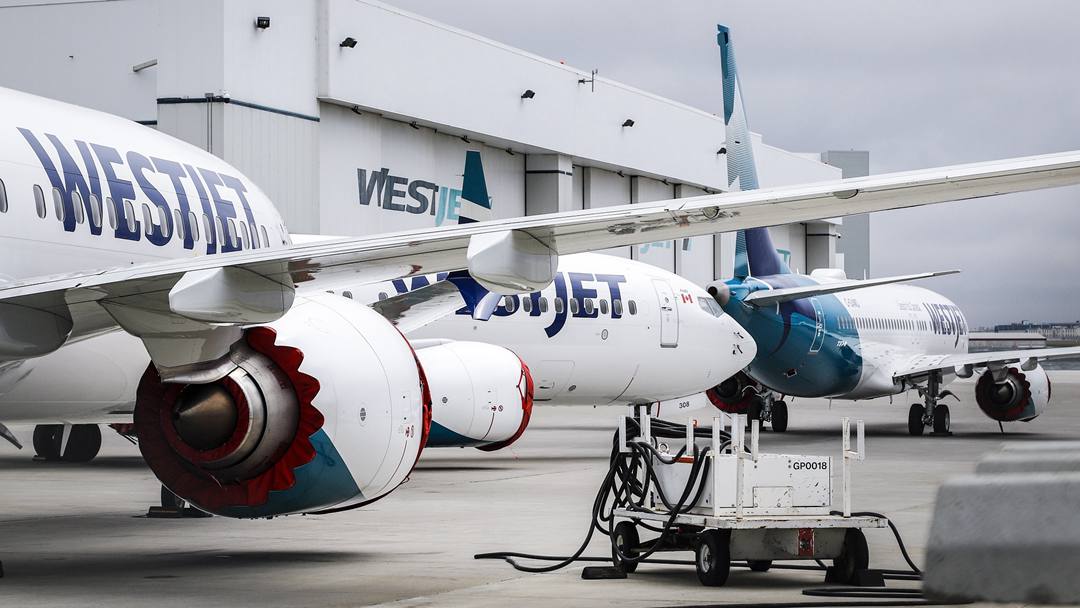Boeing closed the books on a bruising 2020 by announcing another unpleasant surprise on Wednesday: a $6.5-billion hit from delays to its new 777X plane that exacerbated the aerospace giant's annual loss.
Boeing, which saw its revenues ravaged by the commercial airline downturn sparked by the COVID-19 crisis and the 20-month grounding of its 737 MAX model, now expects first deliveries of the wide-body 777X in late 2023, compared with the earlier timetable of 2022.
The accounting for the 777X prolongation pushed Boeing's fourth-quarter loss to $8.4 billion, plunging its tally for all of 2020 to $11.9 billion in the red, its biggest ever annual loss.
The past year was one of "profound societal and global disruption which significantly constrained our industry," said Chief Executive Dave Calhoun.
"The deep impact of the pandemic on commercial air travel, coupled with the 737 MAX grounding, challenged our results."
In light of radically worsened market conditions, Boeing has taken a hacksaw to costs, announcing job cuts of some 30,000 employees over two years.
The company also completed a $25-billion bond offering to provide liquidity to ride out the downturn.
Boeing executives emphasized that they expect a long-term recovery in travel demand, but reiterated that it will take about three years for activity to return to pre-pandemic levels.
They cautioned that profit margins will be under pressure until demand returns and the company is able to ramp up plane production.
"I'm quite optimistic," Calhoun said in a conference call with analysts.
"There's nothing about the market right now that has me switched off on that, but we are talking about 2023. It's going to take that long for us to sort of work our way out of the COVID world."

Grounded WestJet Boeing 737 Max aircraft at the airline's facilities in Calgary, Alberta, Canada, May 7, 2019. /VCG
Grounded WestJet Boeing 737 Max aircraft at the airline's facilities in Calgary, Alberta, Canada, May 7, 2019. /VCG
Beyond the challenge caused by the 777X delay, the fourth quarter included a number of other one-time hits: payments to the U.S. Justice Department to settle criminal charges over the 737 MAX crashes; the altered production schedule for the same aircraft; production issues on the KC-46 U.S. military tanker; and the drag from anemic demand for Boeing's global services business.
Each of these items amounted to a hit of between $275 million and $744 million.
Revenues in the quarter fell by 14.6 percent to $15.3 billion.
As far as the 777X, Boeing has now pushed back the time frame at least three times.
Boeing said the fresh delay reflected the need to incorporate lessons from the 737 MAX certification, as well as uncertainty about airline demand due to the pandemic-driven travel downturn.
Calhoun, in an interview with CNBC, said these changes mean "it's going to be a little more costly and it's going to take a little longer" to certify the 777X.
But he said the plane – ideal for international flights – would be a hit when it is finished.
"We love the airplane," Calhoun said. "We think it's going to be one of the real moneymakers for our company."
The MAX saga weighed on the company's results over the last two years, but the outlook for that program has improved after commercial flights on the plane resumed in late 2020 following a lengthy grounding caused by two fatal crashes.
Since the model was cleared to resume service, Boeing has delivered more than 40 MAX planes, and the aircraft has safely flown more than 2,700 commercial flights on five carriers.
On Wednesday, both the European Union Aviation Safety Agency and its British counterpart cleared the MAX to return to service following lengthy reviews.
Calhoun expressed disappointment at the glitchy rollout of the coronavirus vaccine, saying he now expects a significant uptick in travel in the second half of 2021 rather than in early summer.
"I think all of us were hoping that vaccine distribution might go a little more smoothly," he told CNBC.
"I do think it's going to come back. I've said it all along that there will be robust demand when the time comes. There's a lot of pent-up demand."
Peter McNally, an analyst at Third Bridge Group, said Boeing's results were "disappointing" in several ways and that the company continued to burn through cash while awaiting the travel recovery.
McNally said the return of the MAX was good news, but that "the slower recovery and difficult financial position for Boeing will weigh on the rest of the aerospace supply chain."
Shares of Boeing tumbled by 4.0 percent to $194.03 at the close of U.S. trading.
Source(s): AFP

